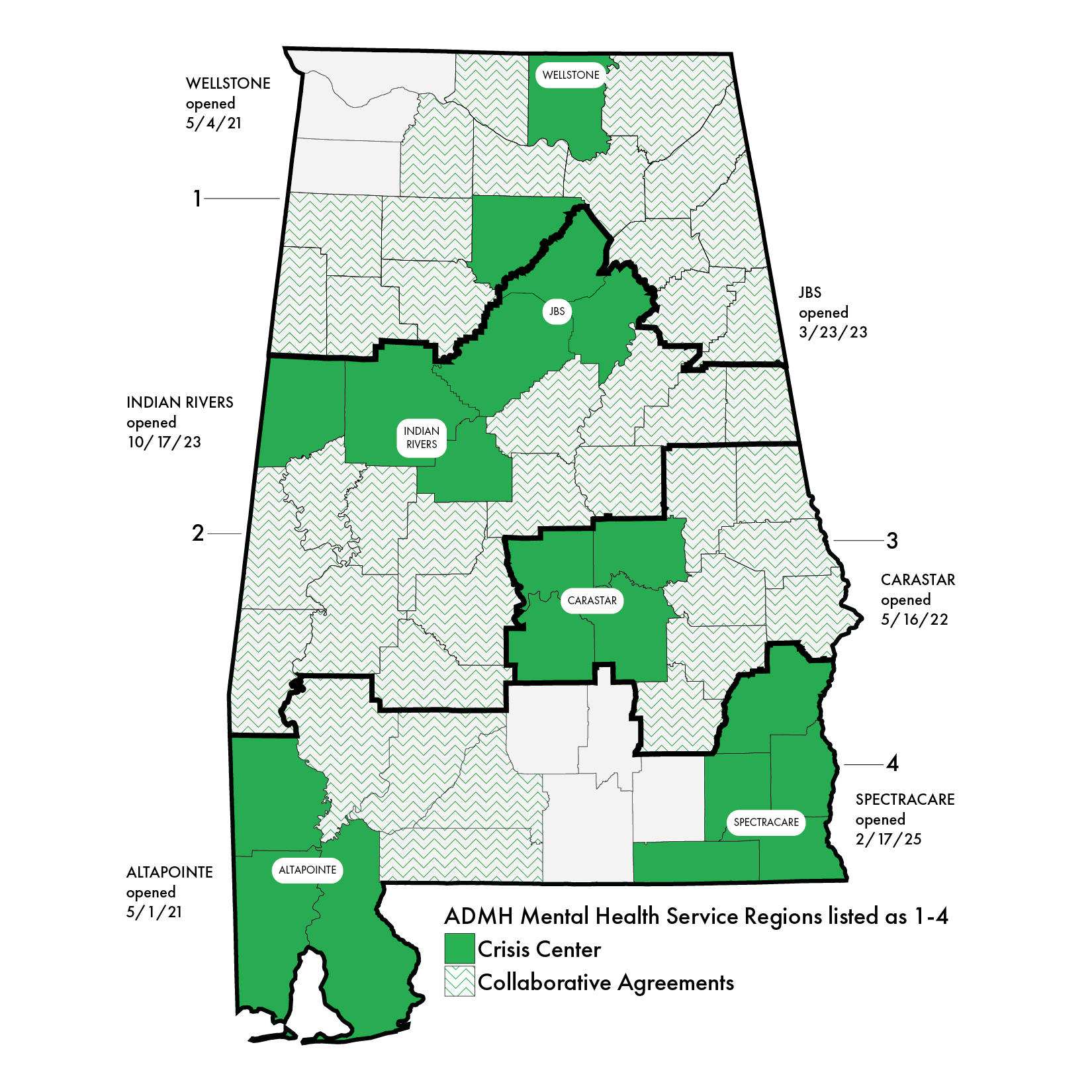As part of the Alabama Crisis System of Care, Crisis Centers are tailored to meet the unique needs of the communities they serve. Currently, six centers operate across the state, providing 24/7/365 access to care.
These centers are safe, designated places where individuals in a mental health or substance use crisis can walk in for help. Law enforcement, first responders, and EMS personnel can also bring individuals in crisis to these centers. Services include:
- Crisis stabilization
- Clinical evaluation
- Psychiatric care
- Referrals to community-based resources
This initiative represents the first major investment in Alabama’s mental health system since Governor Lurleen Wallace’s administration. Under the leadership of Governor Kay Ivey and with legislative support from House Majority Leader Nathaniel Ledbetter, the state has prioritized building a comprehensive crisis continuum of care.
Crisis Center Locations
AltaPointe Behavioral Health Crisis Center
📞 251-662-8000
📍 2401 Gordon Smith Drive, Mobile, AL 36617
Serving: Baldwin, Clarke, Conecuh, Escambia, Monroe, Washington
Carastar Crisis Center
📞 800-408-4197
📍 5915 Carmichael Road, Montgomery, AL 36117
Serving: Autauga, Bullock, Chambers, Elmore, Lee, Lowndes, Macon, Montgomery, Pike, Russell, Tallapoosa
JBS – Craig Crisis Care Center
📞 205-263-1701
📍 401 Beacon Parkway W, Birmingham, AL 35209
Serving: Blount, Calhoun, Chilton, Clay, Cleburne, Coosa, Jefferson, Randolph, St. Clair, Shelby, Talladega
Indian Rivers – Hope Pointe Behavioral Health Crisis Care
📞 205-391-4000
📍 1401 Greensboro Avenue, Tuscaloosa, AL 35401
Serving: Bibb, Choctaw, Dallas, Greene, Hale, Marengo, Perry, Pickens, Sumter, Tuscaloosa, Wilcox
SpectraCare Crisis Center
📞 800-951-4357
📍 2740 Headland Avenue, Dothan, AL 36303
Serving: Barbour, Dale, Geneva, Henry, Houston
WellStone Emergency Services & WellStone Pediatric Crisis Care
📞 256-705-6444
📍 4020 Memorial Parkway SW, Huntsville, AL 35802
Serving: Cherokee, Cullman, DeKalb, Etowah, Fayette, Jackson, Lamar, Lawrence, Limestone, Madison, Marion, Marshall, Morgan, Walker, Winston

